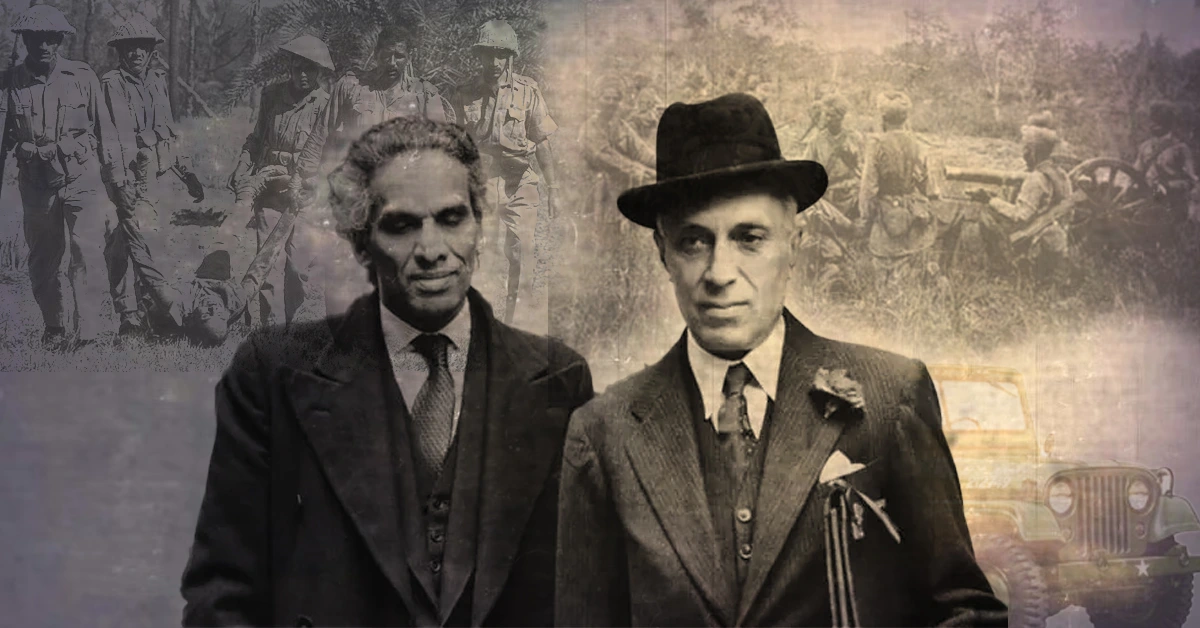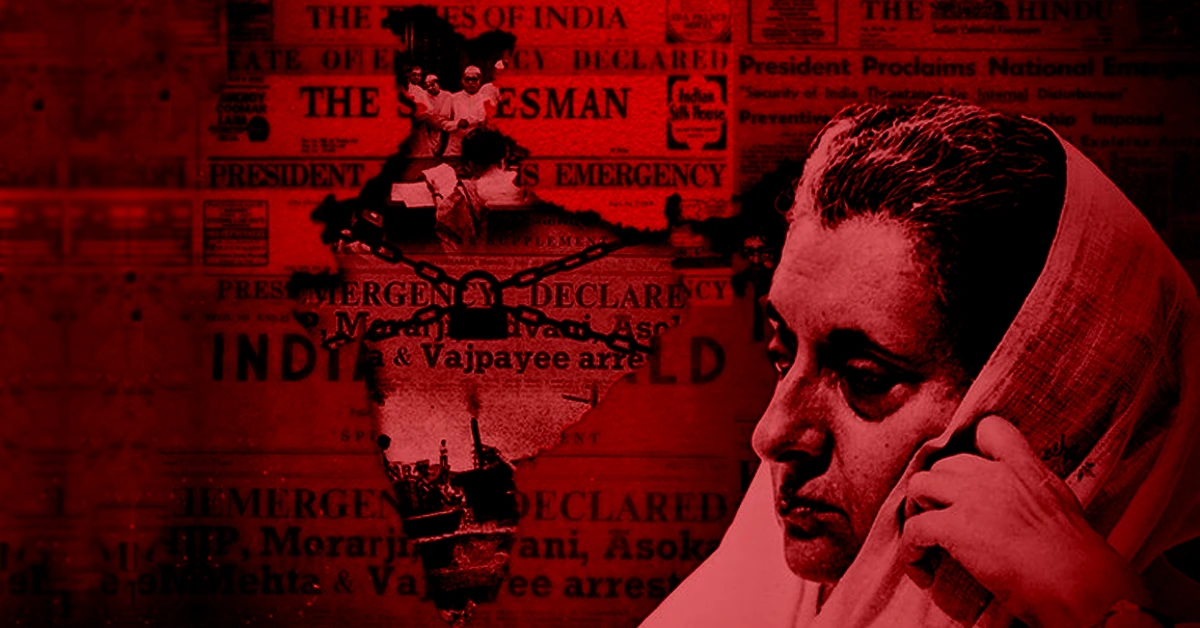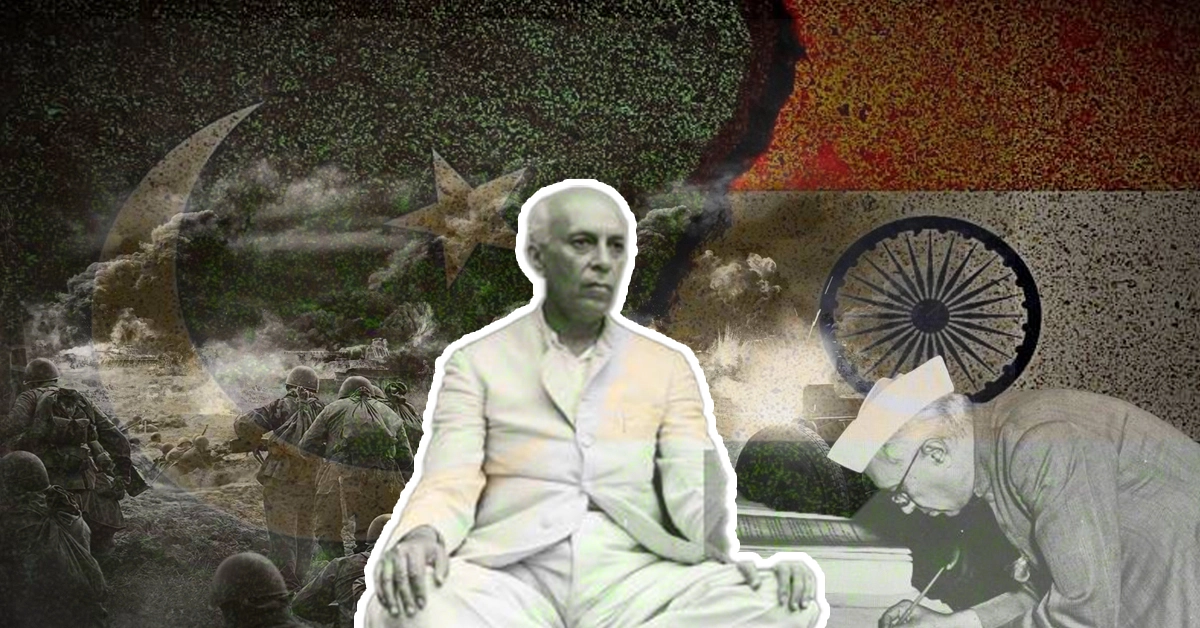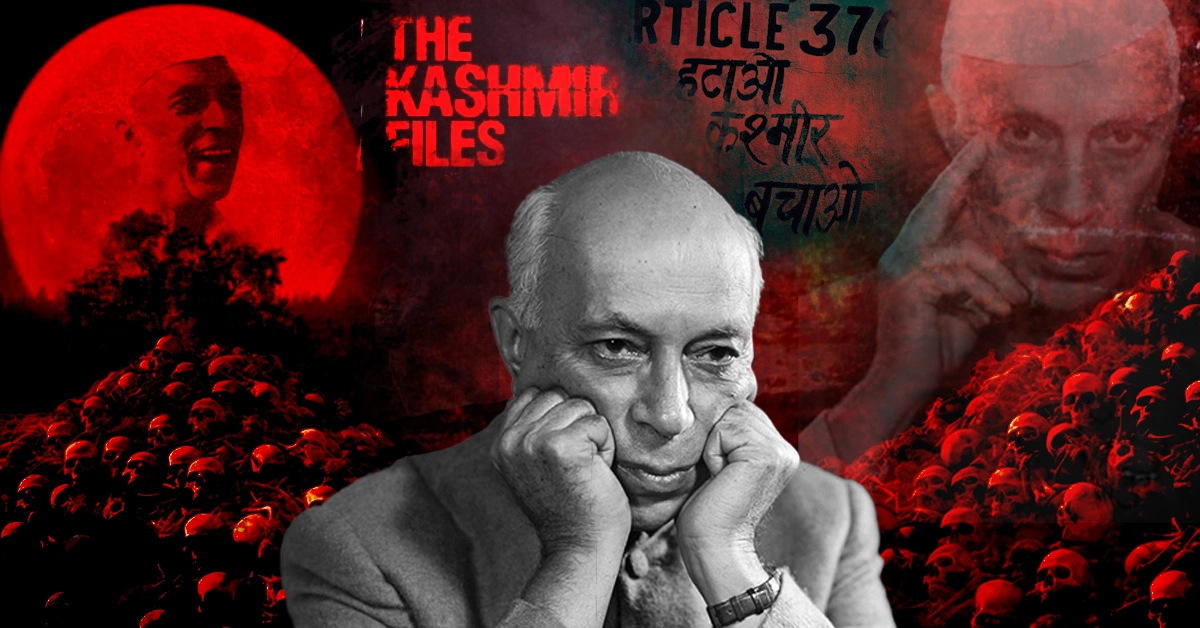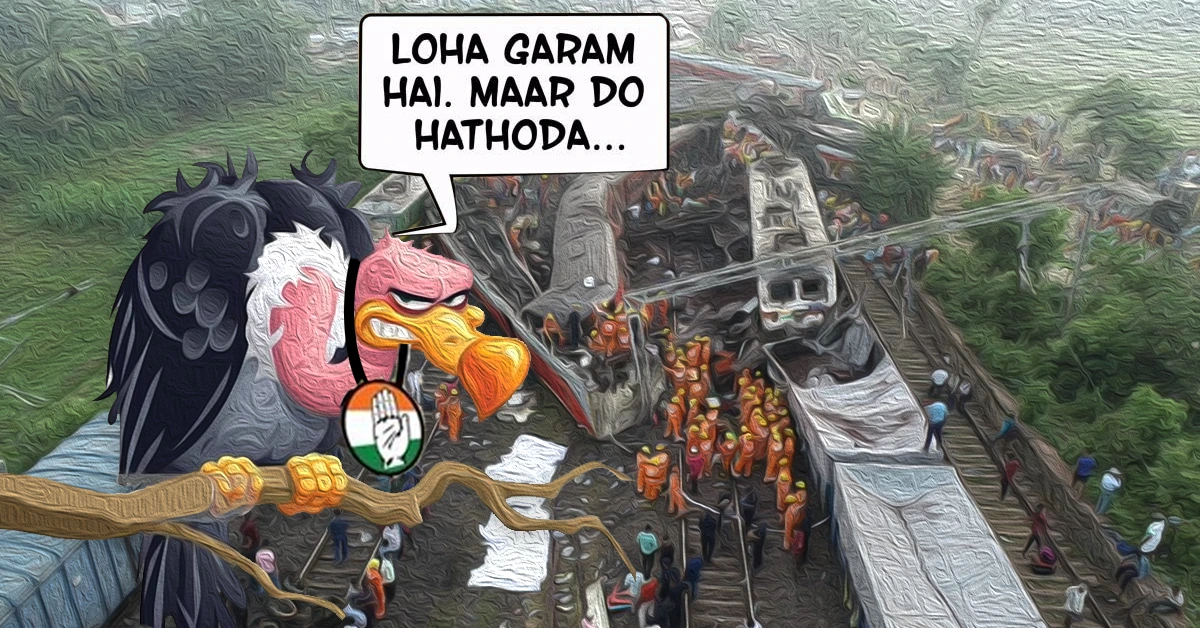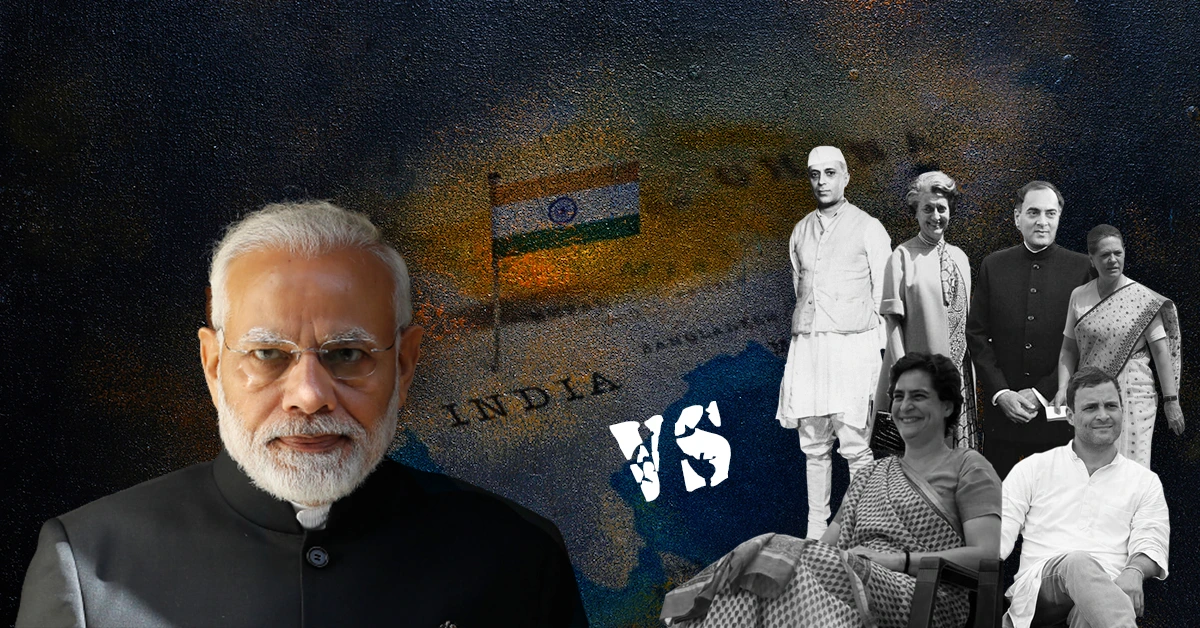Unveiling the grim reality of Indira Gandhi's Emergency rule, this gripping account exposes the rampant abuse of power, censorship, and state-sponsored atrocities that plagued India. From the suppression of dissent to the curtailment of civil liberties, explore the far-reaching consequences of this dark chapter in the nation's history.
Nehru's Corrupting Influence: The Enduring Corruption Lineage of Today's Congress
Speaking out against Nehru’s lingering influence is essential. His reign planted the seeds of corruption, with entitlement overshadowing merit and dynasty prevailing over democracy. The parallel between Nehru’s era and Sonia-Rahul Gandhi’s is uncanny. The thread of corruption persists, a sinister legacy passed through generations.
Read Time: 12 minutes
Why Question Nehru? Amidst the tumult of Pakistan’s 1948 attack on India, a heart-wrenching truth emerged―Jawaharlal Nehru’s Congress prioritized their own gain over national security. As the country faced a grave threat, the leaders who should have stood as guardians chose self-enrichment over safeguarding the land they pledged to protect. As opposed to BJP’s ideology of nation first, self last; this pivotal moment exposed Congress’ true nature―family first, nation last.
It is imperative to speak out against Nehru even today, with an intensity that matches the destructive legacy he left behind. Let’s not mince words—Nehru’s reign sowed the seeds of corruption that still plague our political landscape through the Congress governments. Nehru introduced a culture of entitlement, where merit was overshadowed by sycophancy, and where the dynasty took precedence over democracy. The Congress, once at the forefront of the freedom struggle, has become an emblem of nepotism, largely due to the foundation laid by Nehru. Criticizing him is not just about recalling our history, it’s about awakening to the stark reality that his choices continue to reverberate through the Nehru-Gandhi family, corroding our governance and society. It’s a call to dismantle the pedestal of false admiration and to hold him accountable for setting in motion a chain of events that have hindered our progress since his tenure as the first prime minister. It’s time to confront his mistakes head-on and demand a course correction, for only by acknowledging our past can we forge a more transparent and just future for our nation. Let us just consider, for instance, one of the numerous instances of the corruption culture he fostered. This glaring example starkly reveals the ongoing modus operandi of the Congress party, shamelessly fattening their own wallets while callously disregarding the advancement of our nation.
Krishna Menon – Nehru’s Close Confidante: Krishna Menon. He was often characterized as deceitful, opportunistic, and morally questionable. He was described as entirely unprincipled, negatively affecting India’s international affairs. Krishna Menon was also portrayed as utterly unscrupulous, driven by pernicious ambition, and exhibiting a toxic patriarchal demeanor. He was labeled as someone who didn’t value truth greatly. An article in a famous daily referred to him as a communist sympathizer, a druggie, and having licentious relationships. Despite this, he resided in Nehru’s residence during his time in India and was a close associate and trusted friend of Nehru. Even more shocking was his appointment as the Defense Minister of India, despite his wrongdoings and eccentric character.
This historical background gains significance as it establishes a pattern for the Nehru-Gandhi family to capitalize on lucrative agreements, favoring personal gains over the nation’s interests. It solidifies Congress’ inclination to exonerate every single misdeed committed by individuals who venerate the Nehru-Gandhi family.
Nehru and the Emergence of Scams: At the onset of the 1948 India-Pakistan conflict, the Indian Army faced an urgent need for jeeps to transport troops to Jammu and Kashmir. Krishna Menon, who was serving as the Indian High Commissioner to the UK and shared a close bond with Prime Minister Jawaharlal Nehru, took it upon himself to order 2,000 refurbished jeeps from a company called M/s Anti-Mistantes. These refurbished jeeps came with a price tag of 300 pounds per vehicle. Remarkably, what adds to the astonishment is the revelation that both Canada and the United States could have supplied brand new jeeps at the very same price, rather than the refurbished ones. Menon’s actions were clearly beyond his official capacity as a high commissioner, as they involved making agreements. He went to great lengths to convince relevant Indian government officials to endorse the arrangements he had orchestrated. Due to his close association with Nehru, the concerned officials had no choice but to comply. As an entirely trusted confidante of Nehru, Menon not only initiated this order but also established dubious conditions for the payment and delivery of these jeeps.
The trusted Nehru friend insisted that a mere 10 percent of the jeeps scheduled for delivery undergo inspection. Consequently, after examining just this limited portion of the refurbished jeeps, a substantial 85 percent of the entire payment―in today’s value amounting to 1,50,00,000 pounds or approximately ₹156,00,000 (one hundred and fifty-six crore rupees)―was to be disbursed to the company.
Despite the well-established dubious reputation of Anti-Mistantes, a deal was inexplicably entered into with them. Predictably, the company dispatched a mere 155 out of the 2000 jeeps ordered, none of which were in operational or usable state. The Indian military rejected these jeeps, but shockingly, Anti-Mistantes disappeared into oblivion leaving a trail of losses for India at a very critical juncture.
As the demand for jeeps continued, Menon proceeded to forge yet another contract, this time with a different company called SCK Agencies, to secure 1007 jeeps. This agreement was signed for a higher price tag of 458 pounds per vehicle as against the earlier 300 pounds per vehicle.
Anti-Mistantes was a company based in the United Kingdom. SCK Agencies was a company based in the United Kingdom. Krishna Menon was the Indian High Commissioner to the United Kingdom. Piecing this puzzle together doesn’t require expertise in rocket science. Isn’t this the typical modus operandi in every scam? Forget the Prime Minister, but even a school kid could have connected the dots. Here, the stark insensitivity and clear favoritism of Nehru come glaringly into view. Both Foreign Secretary NR Pillai and Nehru’s Secretary MO Mathai had explicitly brought to Nehru’s attention Menon’s distinct involvement with SCK agencies. Their comprehensive reports laid bare Menon’s exclusive rapport with Bob Cleminson, the Chief Associate of SCK Agencies. Astonishingly, despite being armed with this knowledge, Nehru, driven by Krishna Menon’s veneration for him, shamelessly turned a blind eye. This is a testament to Nehru’s reprehensible moral negligence and paints a stark picture of his ethical bankruptcy driven by the cult-like adulation he enjoyed. It is widely speculated that the proceeds from this transaction found their way into Krishna Menon’s India League and his publishing venture, Meridian Books—a company responsible for publishing Nehru’s own work, “The Discovery of India.” This serves as a glaring indictment of Nehru’s leadership, revealing a shocking breach of integrity and an alarming willingness to overlook blatant improprieties of those who idolized him.
It’s also important to note that the possibilities offered by Canada and the United States still remained viable alternatives. If Nehru or his trusted friend genuinely intended to bolster the capabilities of the Indian military, they could have pursued a different course of action. But they did not. Expecting anything different from Nehru would expose our own foolishness, as he was the one who famously expressed that India didn’t require a defense plan and even advocated for the dismantling of the Army.
Coming back to the fraudulent deal. Initially, in accordance with the requirements of the Indian military, the contract stipulated the delivery of 68 jeeps each month by SCK Agencies. However, Krishna Menon made alterations to this contract as well. He modified the delivery terms to demand the supply of only 12 jeeps monthly for the span of six months, followed by a subsequent increase to 120 jeeps per month. Unsurprisingly, Krishna Menon’s second choice also failed to meet their commitments. Over the course of two years, they managed to deliver just 49 jeeps, thus failing to fulfill their contractual obligations.
Another aspect of the agreement stipulated that SCK Agencies would provide compensation to the Indian government to offset the losses stemming from the initial deal with Anti-Mistantes. However, in addition to the failure to acquire the jeeps through both contracts endorsed by Nehru, the Indian government did not receive any form of compensation for the losses endured as a consequence of the deal.
Rewarding Loyalty at the Expense of the Nation: Nehru refused to take any voluntary action against Krishna Menon. How could he? In fact, Nehru even refused to accept the demand for Menon’s resignation. However, he was forced to change his stand when a widespread outcry erupted over this matter, compelling him to establish a committee to scrutinize the issue. Unfortunately for Nehru, the committee’s investigation unearthed numerous instances of misappropriation. Relying on this damning evidence, the Public Accounts Committee initiated a formal inquiry into the case. But around four and a half years following the committee’s findings, in 1955, Nehru forced a shut-down of the investigation. In one stroke Krishna Menon was absolved of all wrongdoings.
Nehru did not stop at this. Despite the numerous questionable transactions, Nehru took the extraordinary step of rewarding his close confidante. In 1956, he heartily welcomed Krishna Menon into the union cabinet. Furthermore, Nehru elevated him to the position of Defense Minister in 1957, a move that had significant consequences, especially in India’s defeat during the 1962 Indo-China War.
The Mitrokhin Archives reveal that Krishna Menon was also being cultivated by the Soviet intelligence agency, KGB. Under Menon’s influence, Nehru shifted from purchasing British Lightnings to opting for MIG-21s. This decision proved disastrous, as the Soviets’ refused to provide the much-needed MIG-21s during the conflict’s critical juncture. India suffered heavy losses and lost the 1962 India-China war as a result.
The Thread of Corruption: During the reign of Sonia Gandhi and Rahul Gandhi in the UPA era, in just ten years, India bore witness to a colossal array of scams totaling an astronomical Rupees 12 lakh crore―an eye-popping ₹12,00,00,00,00,00,000. These aren’t just hollow numbers; they represent the sweat and toil of Indian taxpayers, shamelessly diverted into private coffers.
The eerie symmetry between corruption during the Nehru era and the Sonia Gandhi-Rahul Gandhi era is impossible to ignore. The same rot that festered in Nehru’s time finds a grim echo in the era led by Sonia and Rahul. The thread of corruption appears unbroken, a sinister legacy handed down through generations starting Jawaharlal Nehru. What is even more disturbing is the Congress party’s unwavering commitment to rewarding loyalty to the Nehru-Gandhi family, regardless of any misdeeds committed. This deeply entrenched culture of favoritism transcends time, spanning the decades, and ensuring that the tainted legacy thrives, generation after generation.
The scars left by this unending cycle of corruption serve as a stark reminder: the Congress party must never be permitted to regain power. The weight of shattered trust and squandered opportunities is too heavy a burden for our nation to bear once more.
Tags: Truth Unveiled, Congress
Share this article:
Leave a Comment
Recommended For You
The Lutyens believes their visceral hatred for PM Modi gives them the ticket to use any means to destabilize the country in order to weaken Modi. But in spite of all the attempts by this syndicate, Modi has successfully managed to bring in transformation that India much needed.
In 1947, Nehru's meddlesome actions in Jammu and Kashmir marked a colossal blunder, prioritizing personal agendas over India's security. His reckless promises, callous disregard for Maharaja Hari Singh's pleas, and the disastrous ceasefire in 1948 allowed Pakistan to seize strategic regions, paving the way for future conflict and the rise →Read More →
Nehru's ego-driven decisions, epitomized by Articles 370 and 35A, unleashed a legacy of discrimination and strife in Jammu & Kashmir. This narrative, marked by betrayal and separatism, inflicted profound suffering on citizens, especially the displaced Kashmiri Pandits. Modi's historic move in 2019, dismantling Article 370, signaled a transformative shift towards →Read More →
Just as the pig revels in its muddy playground, the Congress party seems to derive pleasure from engaging in dirty politics, making it futile to expect a balanced view or any constructive contributions from them. Repeatedly, the Congress party has demonstrated that their sole objective is to acquire power for →Read More →
The people of the country found Damocles sword hanging over their heads during Congress tenures. The Congress tenure must serve as a reminder to us that never again shall we allow our fate to be put in the hands of such evil forces. Never ever!
Global Hunger Index assessment does not reflect the ground reality and is not worthy of consideration. It is, in fact, a hallmark of misinformation and false propaganda.
Rahul Gandhi believes it's his birthright to rule over India. He has a habit of making fabricated allegations beyond facts. Each of his narratives are coated with arrogance and ego and often undermine India's sovereignty. Now it’s for the people of the country to decide if the self-proclaimed monarch should →Read More →
The Gandhi family always places its partisan interest on a higher pedestal than national interest, and Narendra Modi’s biggest political contribution is to end this dynastic rule. India must unite again and stand firmly behind Narendra Modi to defeat this multi-cornered assault on India’s narrative as a rising power.
On one hand Rahul Gandhi is talking about Bharat Jodo, on the other, his party has gone after RSS by posting inciteful messages. By claiming that India was never a nation and by pitching non-BJP ruled states against the center, Rahul Gandhi is trying to create a divide in the →Read More →

